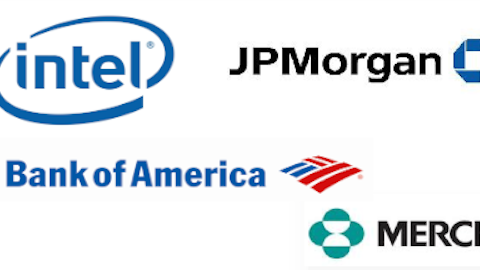Making money in business typically happens in one of two ways. You either sell a relatively low-cost product to a large number of customers. The other option is to sell a high-cost product to a small number of customers.

After years of going with the former approach, big pharma knows that to succeed in the future requires more of the latter. That’s why several major pharmaceutical companies have been building up their capabilities to tackle the red-hot market for drugs that treat orphan diseases affecting small numbers of patients. Here are three ways that the large drugmakers are seizing this “rare” opportunity.
1. The old-fashioned way
Several companies started from scratch by researching and developing drugs for orphan diseases. Eli Lilly & Co. (NYSE:LLY) actually began this process years ago. The company received approval from the Food and Drug Administration for Alimta in 2004. Alimta became the first drug approved in the U.S. for treating malignant pleural mesothelioma, a rare form of cancer with only around 2,000 new diagnoses each year.Lilly has experienced tremendous success with Alimta, which generated nearly $2.6 billion in sales last year
Sometimes drugs that originally focus on more common diseases can also help address orphan diseases. Eli Lilly & Co. (NYSE:LLY)’s tabalumab, for example, is farthest along in development as a treatment for lupus. A phase 3 clinical study is currently under way with the drug targeting this disease. However, tabalumab was also designated by the FDA late last year as an orphan drug for treating multiple myeloma and is in a phase 2 trial for the more rare indication.
2. Making a big deal
Another approach for big pharmaceutical firms seeking to profit from the orphan drug market is to strike a big deal with a company that has products already far along in the pipeline. Merck & Co., Inc. (NYSE:MRK) took this path a year ago when it forged a partnership with Endocyte, Inc. (NASDAQ:ECYT). The big pharmaceutical company paid $120 million upfront and could pay up to $880 million more if certain milestones are met with Endocyte’s star product, vintafolide.
Vintafolide received orphan drug status in March 2012 in Europe. The drug is currently in a phase 3 clinical trial targeting platinum-resistant ovarian cancer and is in a phase 2 trial focusing on non-small-cell lung cancer.
Merck & Co., Inc. (NYSE:MRK)‘s possible $1 billion payout could prove to be a good investment if Wedbush analyst Gregory Wade is right. Wade estimates that vintafolide could hit peak sales in Europe of $400 million per year if approved later this year. He thinks another $500 million could be added to that annual total if the drug also receives approval in the U.S.
